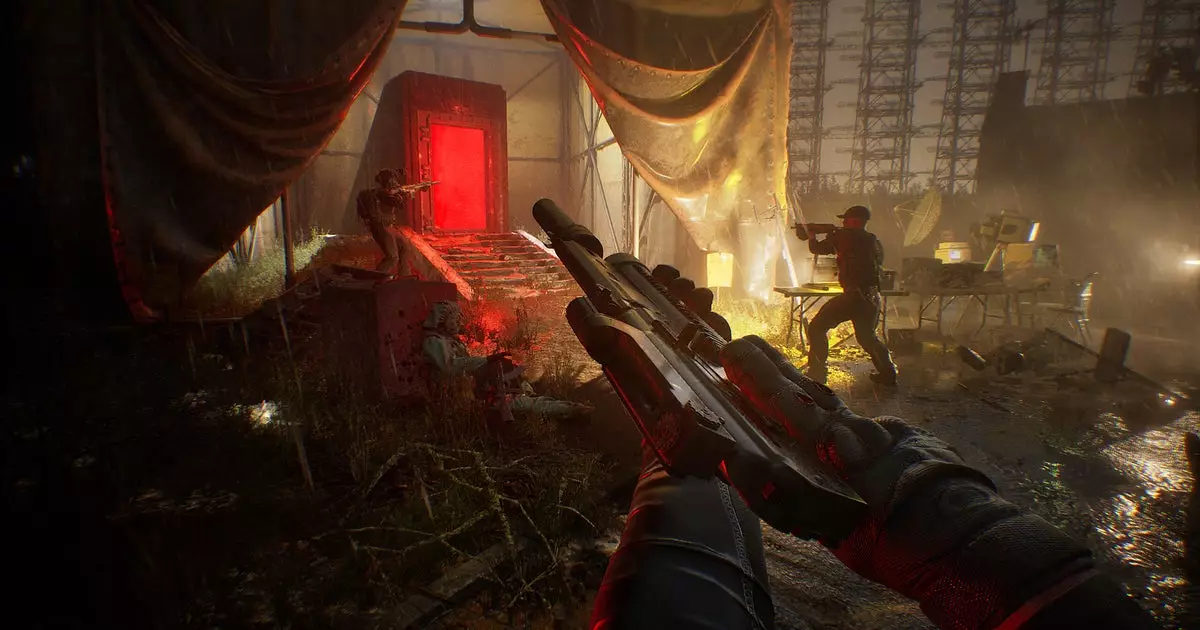The gaming world is perpetually fascinated with the concept of open-world narratives that intertwine horror, dystopia, and cooperative action. “Phantom Line,” a recent endeavor from innovative game developers, transports players to a landscape rife with supernatural terrors and existential crises, where the stakes seem to elevate well beyond the conventional threats of global nuclear warfare. This article delves into the multifaceted appeal of “Phantom Line,” dissecting its key features while also reflecting on the potential pitfalls and the unique atmosphere that sets it apart in the gaming pantheon.
At first glance, players might expect “Phantom Line” to delve into familiar tropes of survival amidst post-apocalyptic scenarios characterized by nuclear devastation. However, the game sidesteps typical conventions, opting instead for a more intriguing narrative backdrop steeped in the paranormal. The urgency of atomic devastation becomes almost trivial compared to the monstrous entities that lie in wait, reminiscent of the works of David Lynch and Andrei Tarkovsky—a surreal mélange of existential dread and artistic depth.
The game implores players to navigate a reality where encounters with “demon puppets” in claustrophobic, red-laden environments are the norm, challenging even the most seasoned gamers to reconsider their responses to fear and survival. The use of psychologically charged visuals and an atmosphere thick with dread pushes players beyond mere survival instincts into deeper realms of introspection and dread, marking this title as more than just another run-of-the-mill shooter.
One of the standout features of “Phantom Line” is the HUSK system, a mechanic that allows gamers to swap between various artificial bodies—the husks—throughout gameplay. This not only fosters a dynamic combat experience, but suggests a deeper philosophical inquiry into identity and the nature of humanity as players confront survival imperatives and moral flexibility.
In essence, this feature elevates the co-op model by adding layers of strategy and adaptability amid combat scenarios, allowing for real-time adjustments based on team dynamics and environmental stimuli. Players can choose from a roster of bodies to fulfill tactical roles, whether it be a decoy, scout, or combat specialist. The possibility of switching bodies adds an engaging element of unpredictability, echoing sentiments of camaraderie and support—albeit with an unsettling twist.
The gameplay also emphasizes exploration and adaptability, reminiscent of titles like “Hunt: Showdown.” Instead of penalizing players with player-versus-player (PvP) competition, “Phantom Line” creates an experience where you can team up with up to three friends against waves of mystical beings and bizarre enemies. Gamers are encouraged to strategize, prepare, and evolve their appearances and abilities to contend with threats that are as unpredictable as they are dangerous.
The promise of dynamic events in the open world beckons players to engage in proactive exploration rather than merely reactionary survival. Each interaction and discovery throughout the environment contributes to a resonant narrative that persists beyond individual encounters, fostering a sense of interconnectedness among players, their husks, and the haunting backdrop they traverse.
Beyond fighting and survival, players are treated to moments of respite between chaos where they can customize their artificial bodies and personalize their underwater hideouts. This respite allows players to cultivate a semblance of normalcy amidst the madness, serving as a grounding element that balances the frantic gameplay with moments of personal connection and customizability.
Yet while lining their submarine with weapons forged from their victories presents a compelling incentive, there is a looming existential reflection of what it truly means to “live” amidst horrors that demand so much from its inhabitants. The underlying message of immersing oneself in the chaos to combat it suggests that the line between monster and man is blurry, inviting deeper contemplation.
“Phantom Line” beckons gamers into an intoxicating cauldron of supernatural horror and cooperative camaraderie. With its unique setting, engaging mechanics, and philosophically charged themes, it offers a fresh take within an otherwise saturated genre. Gamers are left to ponder their own humanity while traversing a world where the horrors are as captivating as they are repulsive—a journey not just marked by survival but by a rich exploration of identity and experience. As they aim to navigate through this shadowy landscape, players might just discover that the true battle isn’t merely against the supernatural, but against their own existential fears and limitations.

